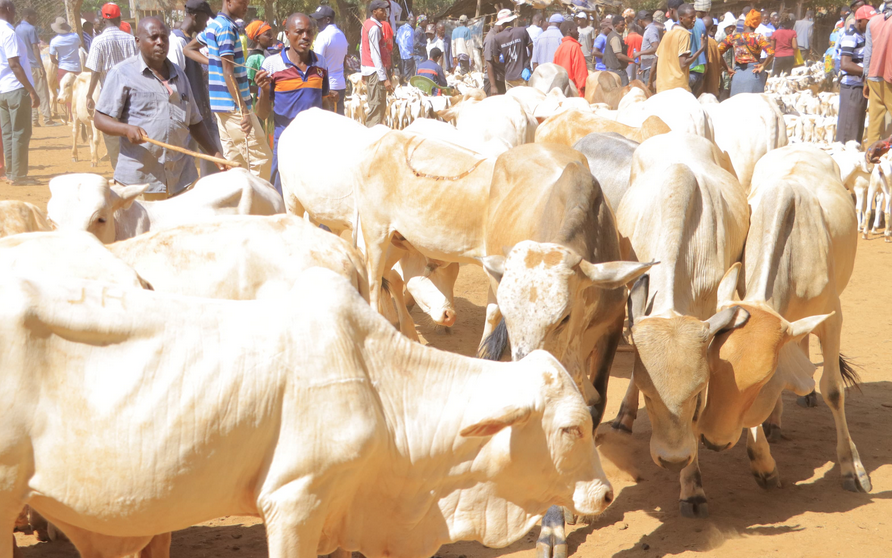
The Kitui government is supporting the B2 Yatta Ranching Cooperative to return to profitability.
Livestock executive Stephen Kimwele on Friday said a modern feedlot will be set up at the 23,109 acre ranch for fattening cattle, whose meat will be for export market.
“If this feedlot is well managed, it will earn the rangers and cattle owners in Kitui more than Sh200 million,” he said.
“Every three months between 300 and 400 heads of cattle will be slaughtered. The meat will be exported.”
He spoke during an inspection tour of a site in Kanyonyoo on the Thika-Mwingi-Garissa highway.
In its heyday, the B2 Yatta Ranching Society held up to a 4,000 heads of cattle. Now it has less than 100 heads of cattle.
The Kitui government is keen to ensure that the
rangers and residents at large reap maximum benefits from the feedlot.
Kimwele said the ranch will be free to partner with other Kitui cattle owners who want their animals fattened.
The national and county governments will facilitate the export of meat abroad, he added.
In other measures, a slaughterhouse will be set up in the nearby and upcoming County Aggregation and Industrial Park.
A livestock training institute will also be built next to the B2 Yatta ranch through a partnership with the national government’s State Department of Livestock.
The proposed location for the institute will be land parcel LR No. 12010, situated opposite the Administration Police Border Patrol Training College at Kanyonyoo.
This is next to the B2 Yatta Ranching Cooperative Society and the Kitui County Aggregation and Industrial Park.
That location is ideal as it would enable trainees to get practical exposure and acquire insights on livestock value-addition processes, Kimwele said.
The executive said the Institute will serve as a centre of excellence in livestock management and handling knowledge and practice.
“The LTI will train middle-level professionals in key areas such as animal health and production, range management, agricultural extension and value addition,” Kimwele said.
The college will also offer short-term courses for livestock keepers and service providers, as well as training in leather technology and livestock product processing.
“All that will be in tune with our Governor Julius Malombe’s development agenda on food security, job creation and economic empowerment,” Kimwele said.

![[PHOTOS] Ruto inspects his Naivasha farm](/_next/image?url=https%3A%2F%2Fcdn.radioafrica.digital%2Fimage%2F2025%2F06%2F72a14e8a-a040-48e1-87b3-597dbca6d7c6.jpeg&w=3840&q=100)









